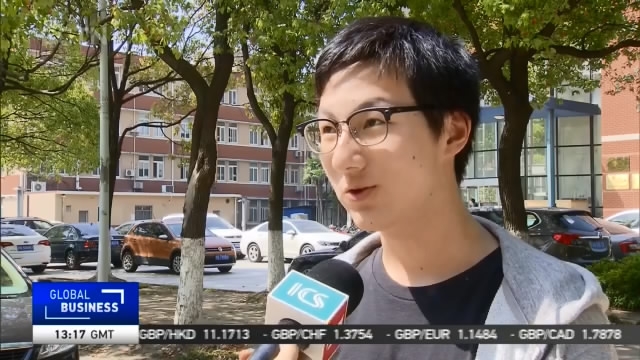
21:53, 18-Apr-2018
China Property Market: Housing subsidies drive prices up?
02:46

Dozens of Chinese cities have implemented a variety of subsidies to attract professionals since the beginning of this year. Those policies include subsidies for the purchase of apartments and favorable rent deals. Some are beginning to worry, however, if those policies would tend to raise property prices just as the government has brought them under control. Our Chen Tong has the story.
The competition among cities to attract professionals has been intensifying over the past few months. Cities including Chengdu and Nanjing have issued favorable policies for professionals to apply for local hukou. Others like Zhengzhou and Changchun are passing out subsidies for the purchase of apartments that can go as high as 100,000 yuan. All these are aimed at attracting people with the kind of background that can help boost local economic development.
COLLEGE STUDENT "Holding a local hukou is one thing that will keep you working in a city."
COLLEGE STUDENT "Property prices are quite high. If there were not this kind of policy, it could take you another five years to pay off your mortgage. That's a lot."
CHEN TONG SHANGHAI The variety of purchasing restrictions has stabilized China's property market over the past year. But with many cities giving so many subsidies to attract professionals, will that de-stabilize property prices once again?
Experts say that Xi'an presents an example of such a controversy. In February, Xi'an loosened its hukou policies. Professionals who meet certain standards now have an easier time applying for local residence, and so do their families. Now new data from the National Bureau of Statistics show that the growth of residential property prices in Xi'an was back up to almost one percent a month by March.
YAN YUEJIN, RESEARCH DIRECTOR E-HOUSE REAL ESTATE RESEARCH INSTITUTE "The sales volume of apartments in these cities will pick up, and that can potentially drive up property prices. Local governments will think of ways to combat that, however, by ensuring that current policies continue and by restricting buyers to only those who intend to live in the apartment themselves. In other words, although the sales volumes may see an increase, most buyers will be professionals or people with real demands. So there won't be any speculation."
Policies to curb housing bubbles continue in force. Data from Centaline Property show that over 20 cities launched additional restrictions in March. In the first quarter of this year, over 70 new types of housing market controls have been issued by local governments nationwide.

SITEMAP
Copyright © 2018 CGTN. Beijing ICP prepared NO.16065310-3
Copyright © 2018 CGTN. Beijing ICP prepared NO.16065310-3